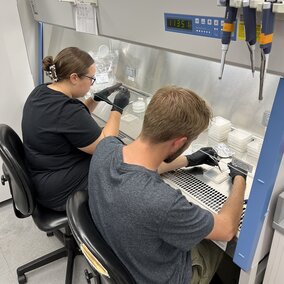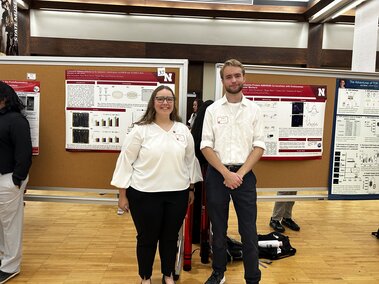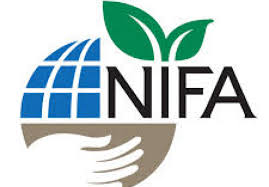REU: Harnessing beneficial bacteria to control plant diseases
Bacterial friends and foes
Description
REU students will investigate beneficial bacteria that produce antimicrobials against bacterial and fungal pathogens. Components of the project include: Generation and evaluation of bacterial mutants to identify genes and pathways responsible for antimicrobial production; Isolation of bacterial secretome to identify specific molecules related to antimicrobial activity; Comparative genomics to identify unique genes and pathways in antimicrobial producer strains; transcriptomics analysis to identify mode of action on target pathogens.
See the list below for associated mentors and projects.

Benefits
- Competitive stipend: $6,500
- Suite-style room and meal plan
- Travel expenses to and from Lincoln
- Campus parking and/or bus pass
- Full access to the Campus Recreation Center and campus library system
- Wireless internet access
Learn more about academic and financial benefits.
Events
- Department seminars and presentations
- Professional development workshops (e.g., applying to graduate school, taking the GRE)
- Welcome picnic
- Day trip to Omaha's Henry Doorly Zoo and Aquarium
- Outdoor adventures
- Research symposium
Questions about this program?
Please direct any questions related to this program to:
Clemencia Rojas: 314-600-7329 • crojas2@unl.edu
Assistant Professor > Department of Plant Pathology
Who Should Apply

Related Fields of Study
- Plant Pathology
- Microbiology
Eligibility
Participation in the Nebraska Summer Research Program is limited to students who meet the following criteria:
- U.S. Citizen or Permanent Resident
- Current undergraduate with at least one semester of coursework remaining before obtaining a bachelor's degree
See Eligibility for more information.
How to apply
Follow the application steps to submit the following materials.
Mentors and Projects
Mentors and Projects
| MENTORS | PROJECTS |
|---|---|
Dr. Clemencia RojasPLANT PATHOLOGY AND CENTER FOR PLANT SCIENCE INNOVATION | Dissecting the antagonistic interaction between Pseudomonas protegens PBL3 and Burkholderia glumae towards development of biopesticides to control Bacterial Panicle Blight of rice The beneficial bacterium Pseudomonas protegens PBL3 has antimicrobial activity against the rice pathogen Burkholderia glumae. This project seeks to characterize the molecules responsible for this activity and their mode of action. |
Funding
Funding
Funding for this research program was generously provided by grants from:
- NSF - National Science Foundation
- USDA - U.S. Department of Agriculture
- NIFA - National Institute of Food and Agriculture
FUNDING SOURCE:


